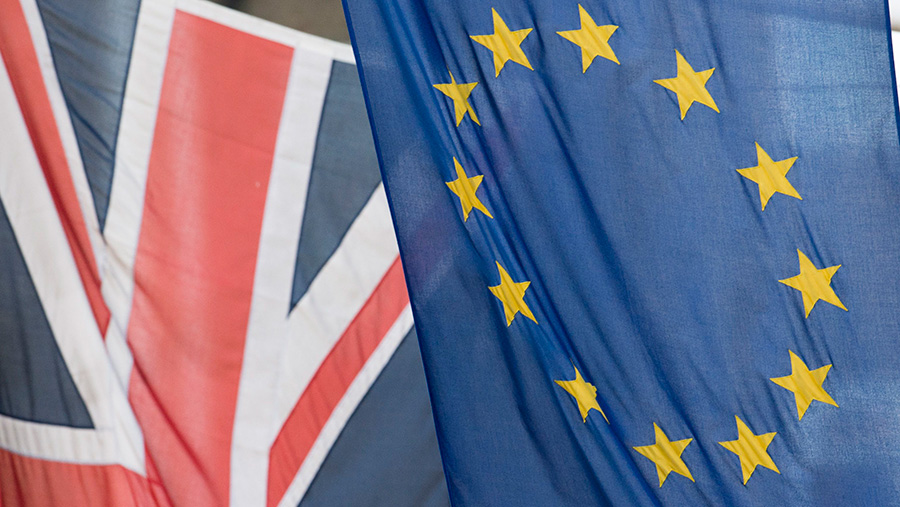5 key Brexit issues for farm businesses
 © REX/Shutterstock
© REX/Shutterstock Farmers should consider five key Brexit-related issues when planning changes to their businesses, an agricultural lawyer has warned.
The UK decision to leave the European Union had big implications for agriculture, said Michael Aubrey, partner with legal firm Mills & Reeve.
“When we leave the EU, we are going to be left with a certain amount of legal chaos,” Mr Aubrey told the Sentry Farming Conference at Newmarket racecourse on Wednesday (8 February).
See also: How farm support can help Brexit-proof your business
With this in mind, farmers should consider the following issues:
- If you are going to do anything, do it sooner rather than later – while the legal rules are known. This includes making any changes to corporate structures or partnership agreements.
- Be careful and consider your options before entering any long-term agreements – especially those beyond 2019, because the future is uncertain.
- Remember, there is no such thing as a Brexit clause in a contract. Although you should be clear about what you want from Brexit, “agreements to agree” are unenforceable.
- Contract farm or tenancy? Try to be as flexible as possible. Contract farming agreements will give you more flexibility than a tenancy agreement.
- Finally, don’t panic. Although it is early days, Mr Aubrey says many of his firm’s farming clients think Brexit will bring as many opportunities as threats.
Red tape
Brexit would create uncertainty and change beyond the time that it took for the government to negotiate its way out of the EU, added Mr Aubrey.
However, it’s unlikely growers and livestock producers will see a reduction in red tape.
“Even though we are going to leave Europe, I still think we are going to have a significant number of EU rules and regulations that are going to affect us,” he said.
Even so, it is difficult to anticipate the full practical consequences of Brexit because European and English laws are likely to be interpreted differently.
“There is bound to be a period of time after we leave the EU trying to sort out that legislation – and how the courts will interpret that legislation,” said Mr Aubrey.
